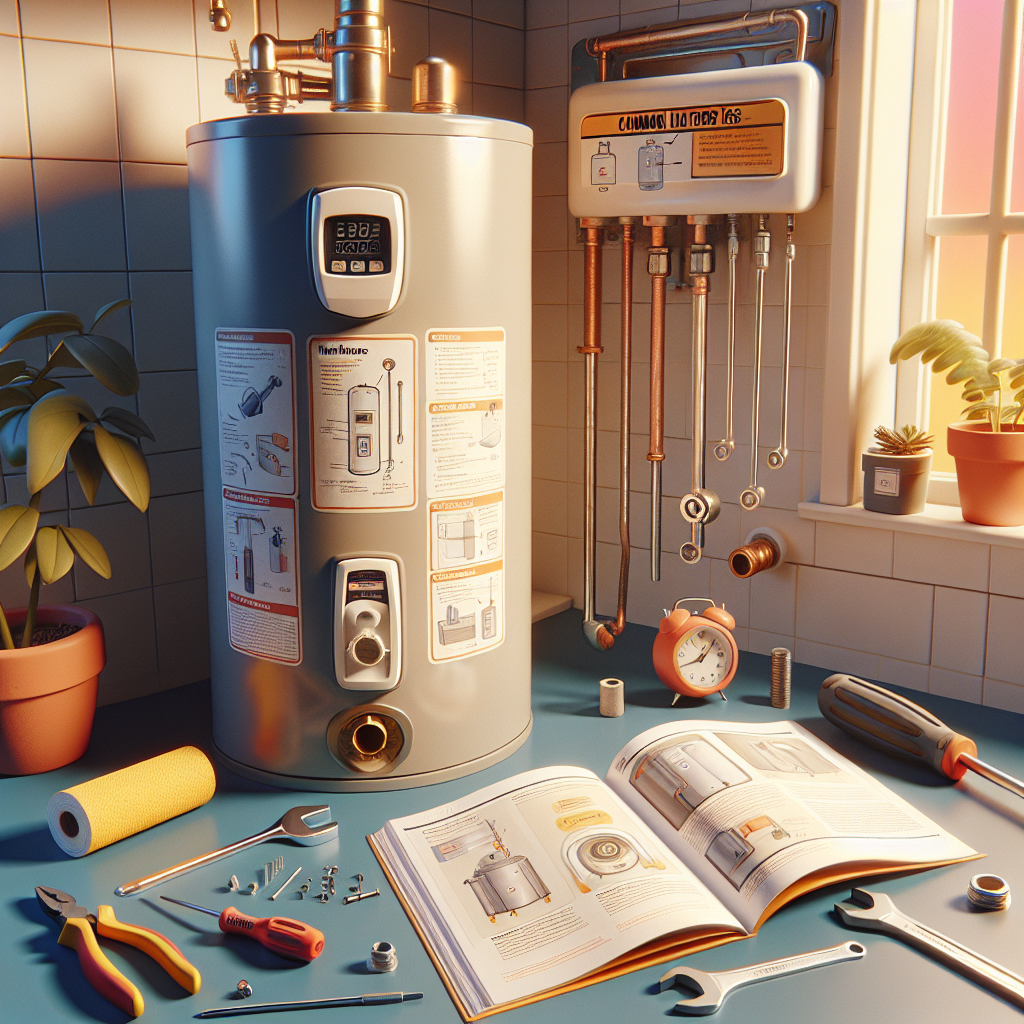Water heaters are essential appliances in any home, providing us with the comfort of hot showers, clean dishes, and warm laundry. However, like any other appliance, water heaters can encounter problems over time. Understanding how to troubleshoot common water heater issues can save you time, money, and discomfort. In this article, we’ll explore frequent issues homeowners face with their water heaters and how to address them effectively.
Understanding Your Water Heater
Before we delve into troubleshooting, it’s essential to familiarize yourself with your water heater. There are mainly two types of water heaters: tank and tankless. Tank water heaters store hot water in a reservoir, while tankless models heat water on demand. Knowing which type you have is crucial, as the troubleshooting steps can differ.
Common Water Heater Problems
1. No Hot Water
What to Check
If you turn on the hot water tap and nothing comes out, don’t panic. Here are a few things to investigate:
- For Electric Heaters: Check the circuit breaker to see if it has tripped. If it has, reset it and see if the water heater powers back on.
- For Gas Heaters: Ensure that the pilot light is lit. If it’s been extinguished, relight it according to your manufacturer’s instructions.
Next Steps
If your circuit breaker is fine, and the pilot light is on yet you still have no hot water, you may need to call a professional. Internal issues, such as a faulty heating element or thermostat, could be the culprit.
2. Insufficient Hot Water
Possible Causes
Experiencing lukewarm showers can be frustrating. Here’s what might be happening:
- Increased Demand: Are more people using hot water than usual? If so, your tank might simply be emptying faster than it can heat.
- Sediment Buildup: Over time, sediment can accumulate at the bottom of your tank, affecting heat transfer.
Troubleshooting Tips
For a temporary fix, you might try staggering hot water usage. If sediment buildup is the issue, consider flushing your tank annually to maintain efficiency.
3. Water Temperature Too Hot
Safety First
Water that’s too hot can be dangerous, leading to scalding, especially for children and the elderly.
Solutions
If your water heater uses a thermostat, check if it’s set too high—typically, a safe temperature is around 120°F (49°C). If the thermostat seems to be malfunctioning, consider replacing it.
4. Strange Noises
Understanding Your Heater
Hearing strange noises from your water heater, such as popping or rumbling, can be alarming. These sounds often indicate sediment buildup inside the tank.
Action Steps
To reduce noise, you might need to flush your water heater to remove debris. If the noises persist after maintenance, call in a professional for a thorough inspection.
5. Water Discoloration or Odor
Identifying Issues
If you notice rusty or foul-smelling water, this could indicate corrosion and bacterial growth within the tank. Rusty water often signifies a failing anode rod, which protects your tank from rust.
Recommended Action
Replace the anode rod to prolong the life of your heater and improve water quality. If odor persists after changing the rod, consider shock treating the water heater with hydrogen peroxide.
6. Leaking Water Heater
Identify the Source
Water pooling around your water heater can indicate a leak. The source may be from pipes, the valve, or the tank itself.
What to Do
If the leak is from a pipe or valve, those are usually inexpensive fixes. However, a leaking tank means it may be time for a replacement, as tanks cannot be repaired.
When to Call a Professional
While many of these issues can be addressed with DIY troubleshooting, some problems require professional intervention. If you’re uncomfortable or unsure about any task, or if your troubleshooting efforts haven’t resolved the issue, it’s best to consult a licensed plumber or HVAC technician.
Preventive Maintenance Tips
To avoid water heater issues in the future, keep the following maintenance tips in mind:
- Flush Your Tank Annually: This removes sediment and improves efficiency.
- Check the Anode Rod Every Few Years: Replacing it can prolong the life of your tank.
- Inspect for Leaks Regularly: Keep an eye out for any water pooling around the base of the heater.
Conclusion
Troubleshooting common water heater issues doesn’t have to be daunting. By understanding your appliance and conducting regular maintenance, you can often prevent major problems from arising. Always prioritize safety in your DIY efforts, and don’t hesitate to call a professional when needed. With the right care, your water heater can provide you with reliable hot water for years to come.


